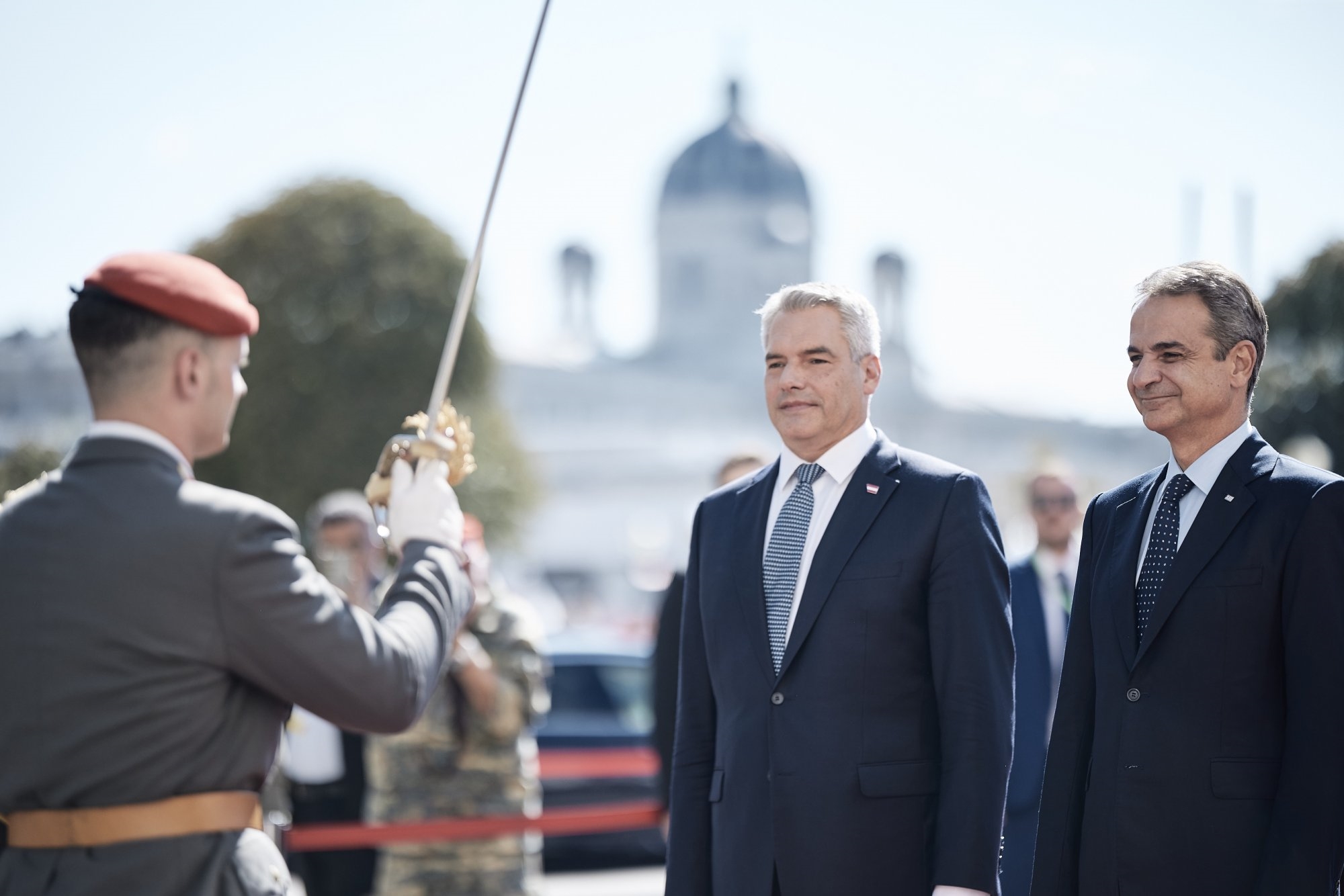A decision by the German government this week to tighten controls on its land borders – including with other Schengen Pact member-states – in a bid to curb illegal immigration continued to reverberate across the Union on Wednesday.
Speaking from Vienna visiting Greek Prime Minister Kyriakos Mitsotakis said the east Mediterranean country on Europe’s southeast corner is fulfilling a European mission in guarding borders, and not just a national purpose.
In pointing directly to standing concerns in Athens, Mitsotakis appeared with Austrian Chancellor Karl Nehammer to underline that Greece, due to its position, cannot bear a disproportionate burden in terms of illegal/ irregular migration.
Hundreds of thousands of third country nationals, mostly from the Middle East, but also from south Asia, North Africa and sub-Sahara Africa, among others, snuck into or landed on Greek territory since 2015, often aided by criminal migrant smuggling rings operating from neighboring Turkey and more recently from strife-plagued Libya. Many of the above filed applications for asylum, while others merely headed to Greece’s western and northern borders in a bid to reach other preferred European destinations.
Back in Vienna, the Greek leader expressed Athens’ gratitude to Austria for its assistance in March 2020 during an organized attempt to breach the country’s frontier at the Evros River in the northeast Thrace province, which marks the land border between Greece and Turkey.
The unprecedented incident at the time served as an occasion for the EU to more prioritize the guarding of the Union’s external borders, in countries such as Greece, Spain and southern Italy.
“The message is clear: It’s not possible for despicable traffickers to determine who enters the EU…this must be a priority for all European states,” he emphasized.
The center-right Greek leader also reminded that Greece has made significant progress over the last five years, something apparent on the eastern Aegean islands, which now have organized reception structures. He also cited what he called fewer arrivals of undocumented migrants setting off from the opposite Turkish coast.
“The border is effectively being guarding and our coast guard is rescuing people in distress.”
Mitsotakis also thanked Vienna for its support to a long-standing request by Athens for greater EU financing towards the better guarding of the Union’s land borders. The last reference directly included the extension of a fortified fence along a bulge of land west of the Evros (Maritsa) River that marks the only direct land border between Greece and Turkey not delineated by the river.
He also said the repatriation of foreign nationals to their home countries requires greater coordination. Conversely, he praised recent agreements allowing for workers from third country to legally enter and work in Greece, citing a pact with Egypt, among others.
On his part, asked about the abrupt German decision, the Austrian chancellor said that he’s trying to “positively view” the developments in Germany as leading a more effective policy for the borders.
Both men emphasized, however, that the EU-wide agreement on migration must be implemented.
“For a country to have reception centers on the islands is an expensive process, and Europe should finance this process because we are carrying out a European mission and not a national mission,” Mitsotakis reiterated.



